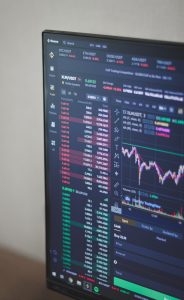Foreign exchange rates, or forex rates, represent the value of one currency in relation to another. These rates fluctuate constantly and are affected by a variety of factors including economic indicators, political events, and market sentiment. Forex agents, who facilitate currency exchange transactions for clients, need to have access to accurate and up-to-date forex rates in order to provide their services. In this article, we will explore the different ways that agents can obtain forex rates.
1. Online Forex Platforms
One of the most common ways that forex agents obtain forex rates is through online forex platforms. These platforms provide real-time forex rates and allow agents to quickly and easily execute transactions on behalf of their clients. Some popular online forex platforms include Oanda, FXCM, and eToro. These platforms often offer a range of tools and resources to help agents analyze market trends and make informed decisions about when to buy and sell currencies.
2. Central Bank Websites
Another way that forex agents can obtain forex rates is by accessing central bank websites. Central banks are responsible for setting monetary policy and often publish forex rates on their websites. For example, the Federal Reserve in the United States publishes forex rates for major currencies on its website. Agents can use these rates as a reference point when executing transactions for their clients. However, it’s important to note that central bank rates may not always reflect the actual market rates, as they may be influenced by government interventions.
3. Market Data Providers
Forex agents can also obtain forex rates from market data providers such as Reuters or Bloomberg. These providers offer a range of financial information, including real-time forex rates, news and analysis, and market data. Agents can use this information to stay informed about market trends and make informed decisions about currency transactions. Market data providers often charge a subscription fee for their services, which can be costly for smaller forex agents.
4. Forex Brokers
Forex brokers are another source of forex rates for agents. Brokers are intermediaries between buyers and sellers in the forex market and offer a range of services including access to real-time forex rates. Some brokers also provide trading platforms and tools that can help agents execute transactions for their clients. However, it’s important to note that brokers may charge fees or commissions for their services, which can eat into the profits of the agent.
5. Forex Rate APIs
Finally, forex agents can use forex rate APIs (Application Programming Interfaces) to obtain real-time forex rates. These APIs allow agents to integrate forex rates into their own software, such as trading platforms or currency exchange websites. APIs are often provided by third-party providers and may come with a subscription or usage fee. Using APIs can be a cost-effective way for agents to obtain forex rates, as they only pay for what they use.
In conclusion, forex agents can obtain forex rates from a variety of sources including online forex platforms, central bank websites, market data providers, forex brokers, and forex rate APIs. Each source has its own advantages and disadvantages and agents may choose to use a combination of sources to ensure they have access to accurate and up-to-date forex rates. By staying informed about market trends and using the right tools and resources, forex agents can provide high-quality service to their clients and build a successful business in the currency exchange industry.





